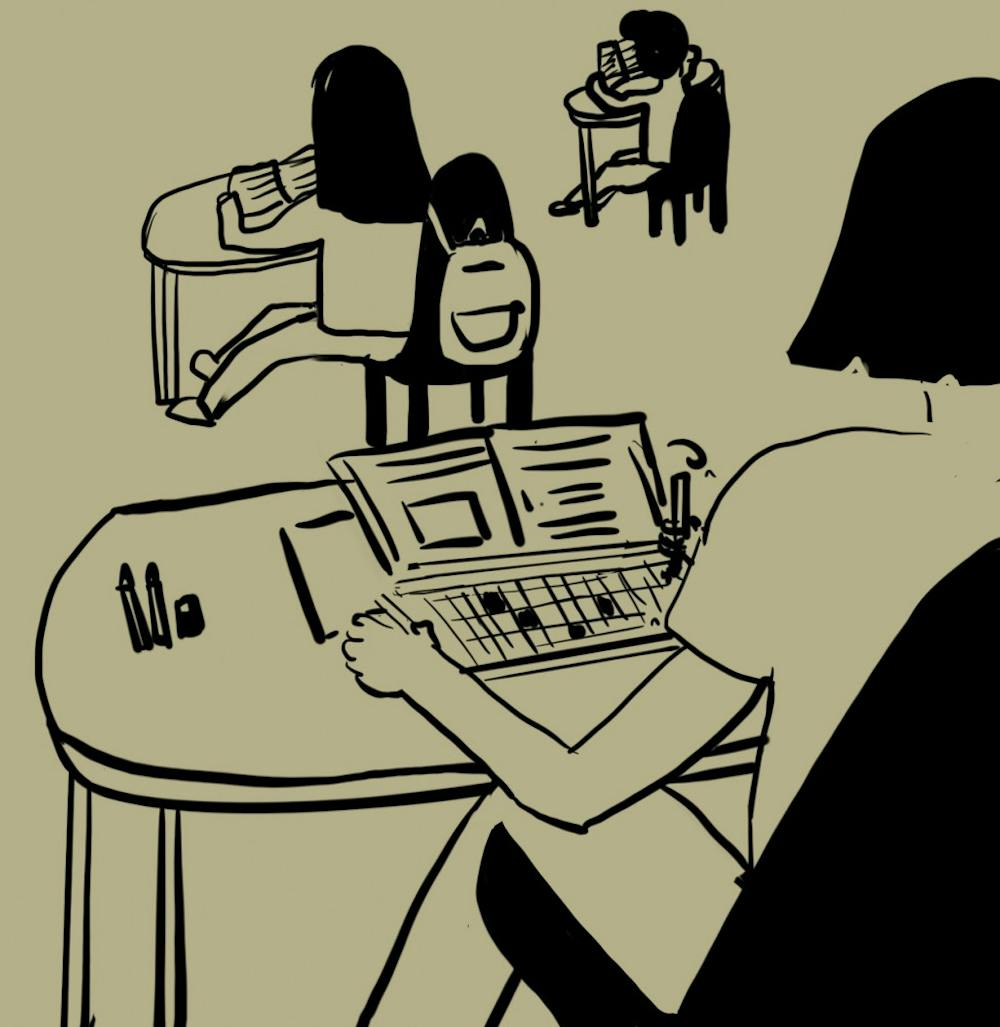First-year applicants to the class of 2026 will not have to submit a standardized test score with their applications, the Admissions Office announced Tuesday.
The University initially announced its test-optional policy for applicants in the 2020-21 cycle last June — with the caveat that applicants for the 2021-22 cycle should still expect to submit a score. But challenges “still remain” for students to access standardized testing, said Dean of Admission Logan Powell, requiring the University to adjust its plans.
“The health of students and families is of paramount importance,” Powell said. “There should never be pressure for students to go into a testing environment where they feel at risk.”
In a statement, the Admissions Office said that students have limited opportunities to register for in-person standardized testing, also noting that “students are facing particularly great challenges in regions that have already been disproportionately affected by the global pandemic.”
The University will still consider any scores that are submitted along with all other required information in an application.
Four other Ivy League schools — Harvard, Cornell, Penn and Columbia — have already announced that they won’t require the submission of ACT or SAT scores next fall. The University, Powell added, wanted to make its policies clear before the traditional first “big wave” of testing happens for high school juniors in February and March.
“Colleges recognize that we’re not going to have this whole mess cleared up by the fall,” said Nancy Griesemer, a private college counselor in Fairfax County, Virginia.
“I have a student who has Lyme disease,” she added. “It’s hard for me to tell her to go in and take a test.”
But easing the burden on students creates a challenge for admission offices: Test-optional policies across top schools have contributed to applicant pool sizes that have shattered records. This year, the University received 46,469 applications for the class of 2025, a 26 percent increase from the year before. The first effect of the sharp increase became clear with the announcement of this year’s “Ivy Day,” the date upon which every Ivy releases their admission notifications at the same time. In past years, that date has fallen in the final week of March — this year, it will come a week later on April 6 to allow offices more time to consider applicants, Powell said.
“The numbers of applications are just overwhelming,” Griesemer said. “It’s produced a lot of stress and strain.”
In the second year of not requiring standardized tests, Griesemer said, colleges will be “better prepared” for larger applicant pools.
“We’re in the stage of asking all the questions that would help guide … how we can really, fully, thoughtfully, thoroughly review the applicants that we receive,” Powell said. Admission officers, Powell emphasized, always look at the “whole person” when evaluating applications. The challenge, he explained, will be figuring out “how best to do that” with more applicants than ever before.
The test-optional policy is effective only for the 2021-22 cycle, though Powell left the door open for policy changes after that cycle as well.
“We’ll get through this year, we’ll get through next year, we’ll take what we learn from that to make the best decision,” he said.
Applicants who don’t submit test scores and are admitted, Griesemer said, can help inform the decision on whether to extend out test-optional policies. Colleges, she said, can “wait another year” maintaining test-optional policies and evaluate the performance of students accepted without scores.
Prospective student-athletes will be required to follow the Ivy League athletic conference’s guidance regarding whether they should submit a standardized test score. The conference did not require that applicants submit a test score for this application cycle.
International students are also not required to submit a test — though the University “highly recommends” the TOEFL or IELTS, two international standardized tests. If an international applicant cannot access either of those tests, the University also accepts other tests — such as those on the language learning app Duolingo — to prove English proficiency.

Will Kubzansky was the 133rd editor-in-chief and president of the Brown Daily Herald. Previously, he served as a University News editor overseeing the admission & financial aid and staff & student labor beats. In his free time, he plays the guitar and soccer — both poorly.





